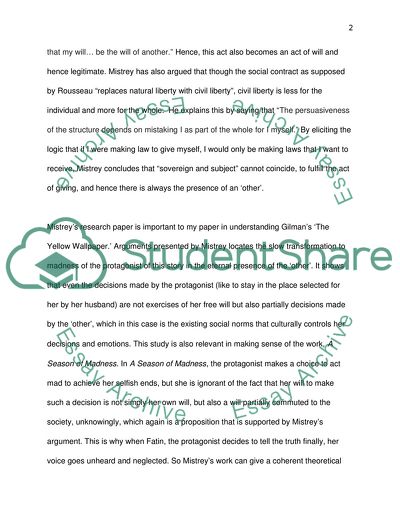Cite this document
(The Issues of Law and Democracy in the Framework of Social Contract Annotated Bibliography, n.d.)
The Issues of Law and Democracy in the Framework of Social Contract Annotated Bibliography. Retrieved from https://studentshare.org/law/1755478-social-insanity-and-the-general-will-subverted-in-the-yellow-wallpaper-and-a-season-of-madness
The Issues of Law and Democracy in the Framework of Social Contract Annotated Bibliography. Retrieved from https://studentshare.org/law/1755478-social-insanity-and-the-general-will-subverted-in-the-yellow-wallpaper-and-a-season-of-madness
(The Issues of Law and Democracy in the Framework of Social Contract Annotated Bibliography)
The Issues of Law and Democracy in the Framework of Social Contract Annotated Bibliography. https://studentshare.org/law/1755478-social-insanity-and-the-general-will-subverted-in-the-yellow-wallpaper-and-a-season-of-madness.
The Issues of Law and Democracy in the Framework of Social Contract Annotated Bibliography. https://studentshare.org/law/1755478-social-insanity-and-the-general-will-subverted-in-the-yellow-wallpaper-and-a-season-of-madness.
“The Issues of Law and Democracy in the Framework of Social Contract Annotated Bibliography”. https://studentshare.org/law/1755478-social-insanity-and-the-general-will-subverted-in-the-yellow-wallpaper-and-a-season-of-madness.


